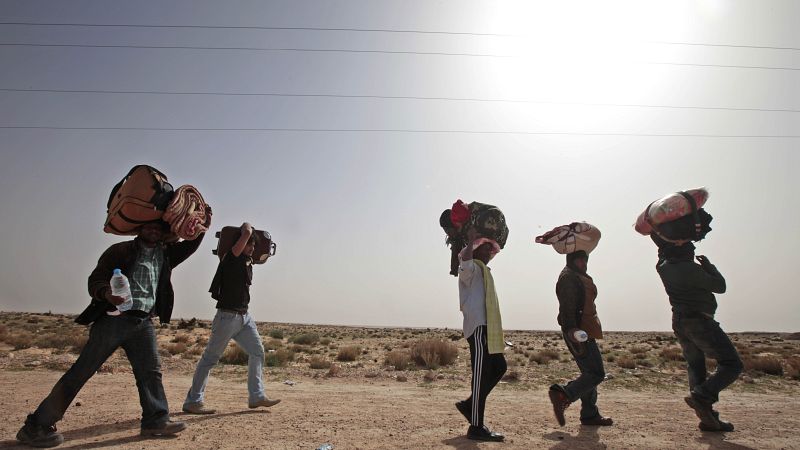Over 300 irregular migrants detained in Libya after arrest in desert

More than 300 migrants have been arrested in Libya's desert by the 444 Brigade.
The powerful militia group that operates under the auspices of the Libyan army, said in a statement Monday (Nov. 25) that its patrolling commanders detained the migrants and referred them to authorities.
The group in a post on Facebook condemned smuggling and human trafficking and said its patrols would continue efforts to block smuggling routes.
The nationality of the migrants was not immediately clear.
The 444 Brigade posted satellite images of the desert and pictures of what appeared to be migrants sitting in rows in front of armed and masked militants.
The apprehensions come as Libya remains a primary point of departure for men, women and children from the Middle East and Africa aiming to reach Europe. Many are escaping war or poverty and many employ smugglers to help them negotiate treacherous deserts and sea routes. Roughly 38,000 people have arrived in Italy and Malta from Libya this year, according to UNHCR, the United Nations Refugee Agency.
The overcrowded boats used by migrants and smugglers are known to routinely capsize and a key priority for European leaders has been to pay North African countries to prevent migrants from reaching the sea. But unlike in Morocco and Tunisia — where tens of thousands of migrants also attempt to pass through en route to the southern shores of Europe — fighting between rival governments in Libya has added additional challenges to migration management partnerships.
Migrant apprehensions are rarely reported in Libya, though the country's state news service LANA reported more than 2,000 arrests in July.
The oil-rich country plunged into turmoil after a NATO-backed uprising toppled longtime dictator Moammar Gadhafi. Since then, the country has been divided between dueling governments in the east and west, each backed by militias and foreign powers. Human traffickers have for years benefited from the political chaos.
United Nations High Commissioner for Human Rights Volker Türk in July said migrants in the country had been subjected to torture, forced labor and starvation while being detained.
Today

